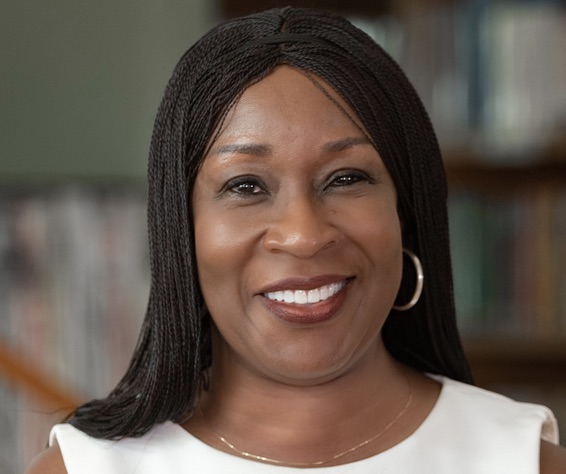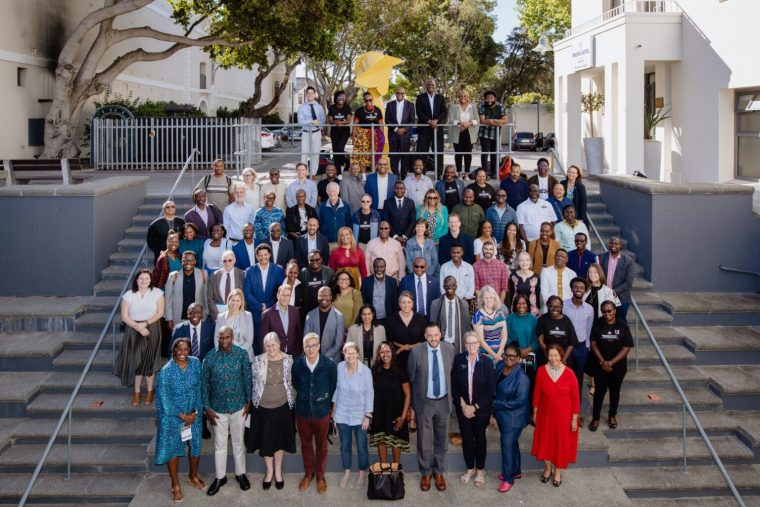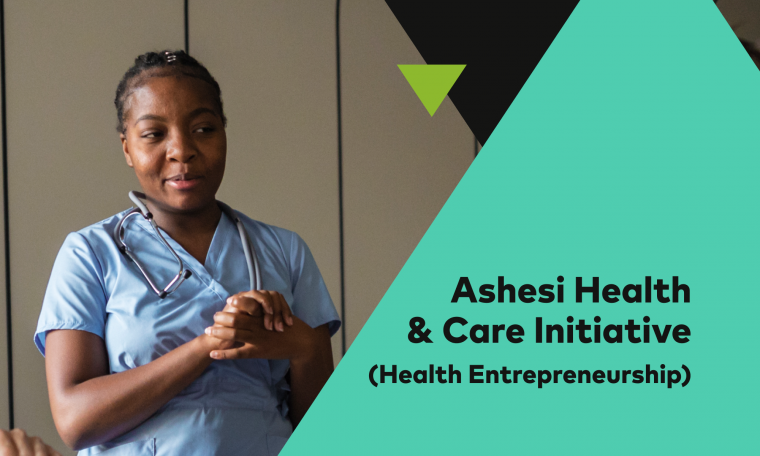Explore the program
Stay informed on the most recent updates, application deadlines, and additional details.
Pillar: Health Entrepreneurship
Program Status: Active
Country:
The Ashesi Health & Care Initiative Incubator (AHCI2), hosted by the Center for Entrepreneurship at Ashesi is focused on the Health Entrepreneurship pillar of the Africa Health Collaborative. The Ashesi Health & Care Initiative is modelled on University of Toronto’s H2i Hub and Ashesi’s entrepreneurship center’s curriculum. It is focused and designed to build and grow health-related viable business ideas, early-startups and scale-up accelerator programs primarily for Ashesi and student of the 7 other African Universities who comprise the Africa Health Collaborative.
Students engage in group discussions and activities, personal reflections, and case study analysis to become informed citizens, policy actors, and future policy leaders. They also think critically about the implications of public policies in African societies and identify strategies to stimulate public policy change.
The course was co-created by the University of Toronto’s School of Continuing Studies Learning Innovation design team, the Office of the Vice President International, U of T faculty subject-matter-experts who specialize in public policy and designed in consultation with Ashesi University.
Course Learning Outcomes
Ideation Stage
- Apply ideation methods to generate new and useful ideas.
- Identify the right part of their idea to test.
- Build prototype solutions.
- Refine ideas by sharing, and through feedback.
Early Start-up Stage and Scale-up Stage
- Ideate, design, & create value and solutions to the health problems.
- Access funding to move their prototype to a commercial item.
- Gain revenue, create jobs, raise investments, and make profit.
- Build prototype solutions
- Refine ideas by sharing, and through feedback.

Ashesi University
Ghana
Meet the Team




Get in contact

Provost (Chief Academic Officer/Pro Vice Chancellor) at Ashesi University
More Programs
Skip scroller content
Certificate in Biomedical Engineering
Addis Ababa University
Collaborative Research: Needs Assessment Research (NAR) Baseline Study @ Ashesi University
Ashesi University, University of Toronto
Collaborative Research: Needs Assessment Research (NAR) Baseline Study @ Moi University
Moi University, University of Toronto
Collaborative Research: Needs Assessment Research (NAR) Baseline Study @ Addis Ababa University
Addis Ababa University, University of Toronto
Collaborative Research: Needs Assessment Research (NAR) Baseline Study @ African Institute for Mathematical Sciences (AIMS)
African Institute for Mathematical Sciences, University of Toronto
Collaborative Research: Needs Assessment Research (NAR) Baseline Study @ African Leadership University
African Leadership University, University of Toronto
Collaborative Research: Needs Assessment Research (NAR) Baseline Study @ Amref International University (Kenya) & Amref Health Africa
Amref International University, University of Toronto
Collaborative Research: Needs Assessment Research (NAR) Baseline Study @ Kwame Nkrumah University of Science and Technology
Kwame Nkrumah University of Science and Technology, University of Toronto
Collaborative Research: Needs Assessment Research (NAR) Baseline Study @ University of Cape Town
University of Cape Town, University of Toronto

